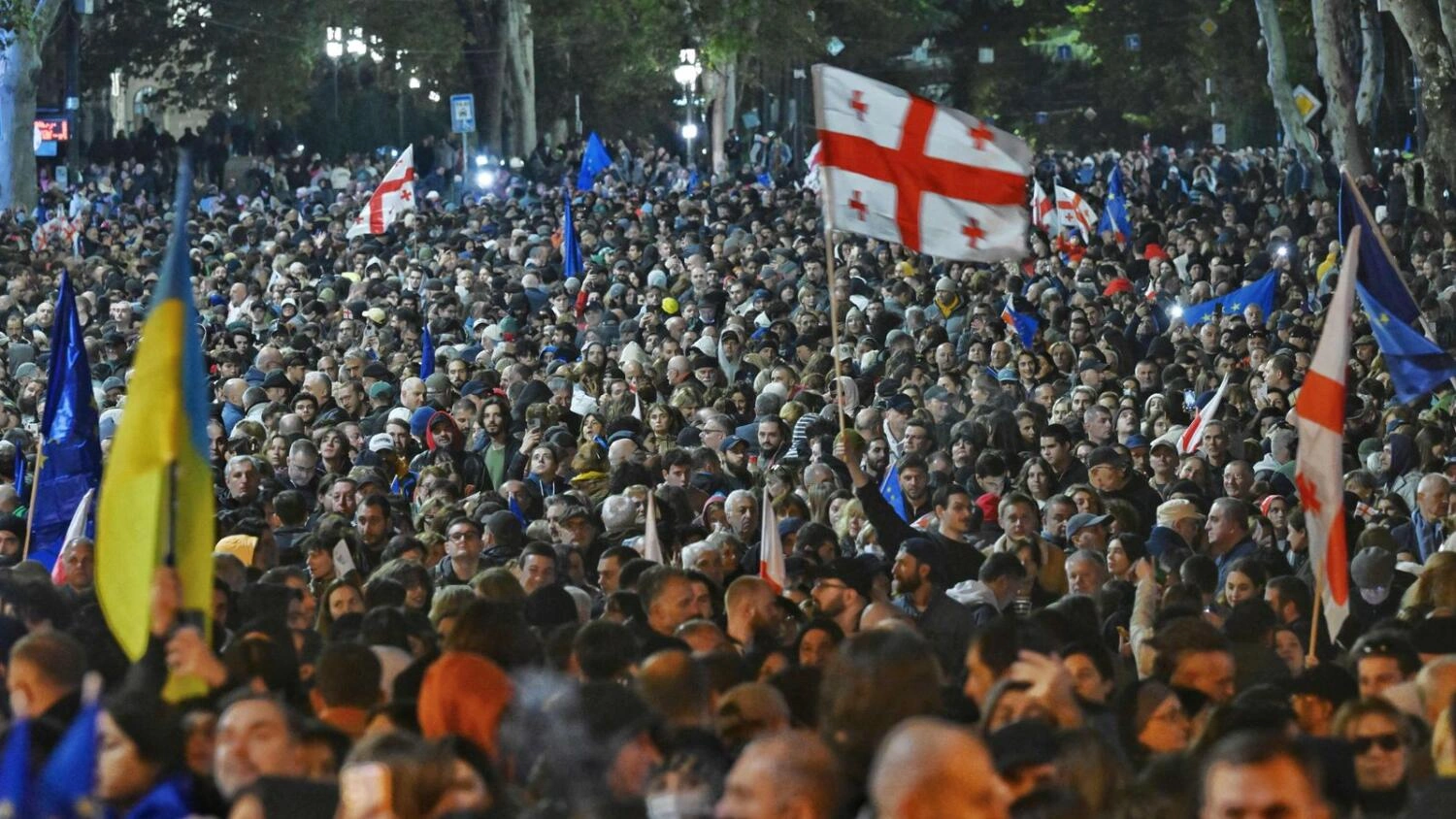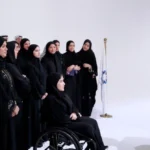Georgia’s Prime Minister, Irakli Kobakhidze, announced on Monday that his government will not engage in negotiations with the opposition. This statement came as thousands of people filled the streets of Tbilisi to protest his decision to halt discussions about joining the European Union (EU).
The country has faced unrest since the ruling Georgian Dream party declared victory in the October 26 parliamentary elections, which the pro-European opposition claims were fraudulent.
Tensions Over EU Accession Talks
Last week, Kobakhidze revealed plans to postpone Georgia’s EU membership talks until 2028. This decision followed a boycott by opposition MPs and efforts by the pro-EU President Salome Zurabishvili to nullify the election results.
The move was met with widespread outrage, with critics calling it a “betrayal” and a “coup.” The announcement sparked nightly protests in Tbilisi, where clashes between police and demonstrators have escalated.
On Monday, for the fifth consecutive day, tens of thousands of people gathered outside the parliament building, waving Georgian and EU flags. The protests have shown no signs of slowing down, and Kobakhidze has taken a firm stance, declaring, “No negotiations.” He accused the demonstrators of being funded by foreign entities and assured that “there will be no revolution in Georgia.”
Georgia’s EU Membership Ambitions
Despite the protests, Kobakhidze insists that joining the EU remains a priority. He reiterated that his government aims to achieve membership by 2030 but ruled out negotiations for the next four years. Georgia’s constitution mandates pursuing EU membership, and opinion polls consistently show that 80% of the population supports the move.
President Zurabishvili has openly sided with the demonstrators and stated that she will remain in office until fresh elections are held, despite her term ending soon. “Another powerful night of Georgians defending their constitution and European choice,” she wrote on X, condemning the use of tear gas and water cannons against protesters.
Protests and Clashes in Tbilisi
The opposition is boycotting the newly elected parliament and has called the government illegitimate. Zurabishvili has asked the constitutional court to annul the election results. Critics argue that the Georgian Dream party has been moving the country closer to Russia and away from the EU, a claim the ruling party denies.
The protests have turned violent, with dozens of injuries reported among protesters, police, and journalists since Thursday. Demonstrators have launched fireworks, lit fires, and thrown projectiles, while police have used tear gas, water cannons, and rubber bullets. The interior ministry reported 224 arrests and injuries to 21 police officers during the first four nights of protests.
President Zurabishvili has raised concerns about police brutality, claiming that many arrested protesters have suffered severe injuries, including broken bones and facial wounds. Opposition leader Levan Khabeishvili also reported being attacked by masked police but managed to escape with the help of protesters.
Wider Impact of the Protests
Anti-government strikes have erupted in businesses and schools, with media reporting widespread discontent over the EU membership delay. Several diplomats and ambassadors have also signed letters condemning the government’s decision to suspend the accession bid.
Meanwhile, Russia defended Georgia’s actions, with Kremlin spokesperson Dmitry Peskov comparing the protests to Ukraine’s 2014 uprising. He accused demonstrators of trying to create unrest.
The protests in Tbilisi highlight the divide between Georgia’s government and its pro-European citizens, with no resolution in sight.





